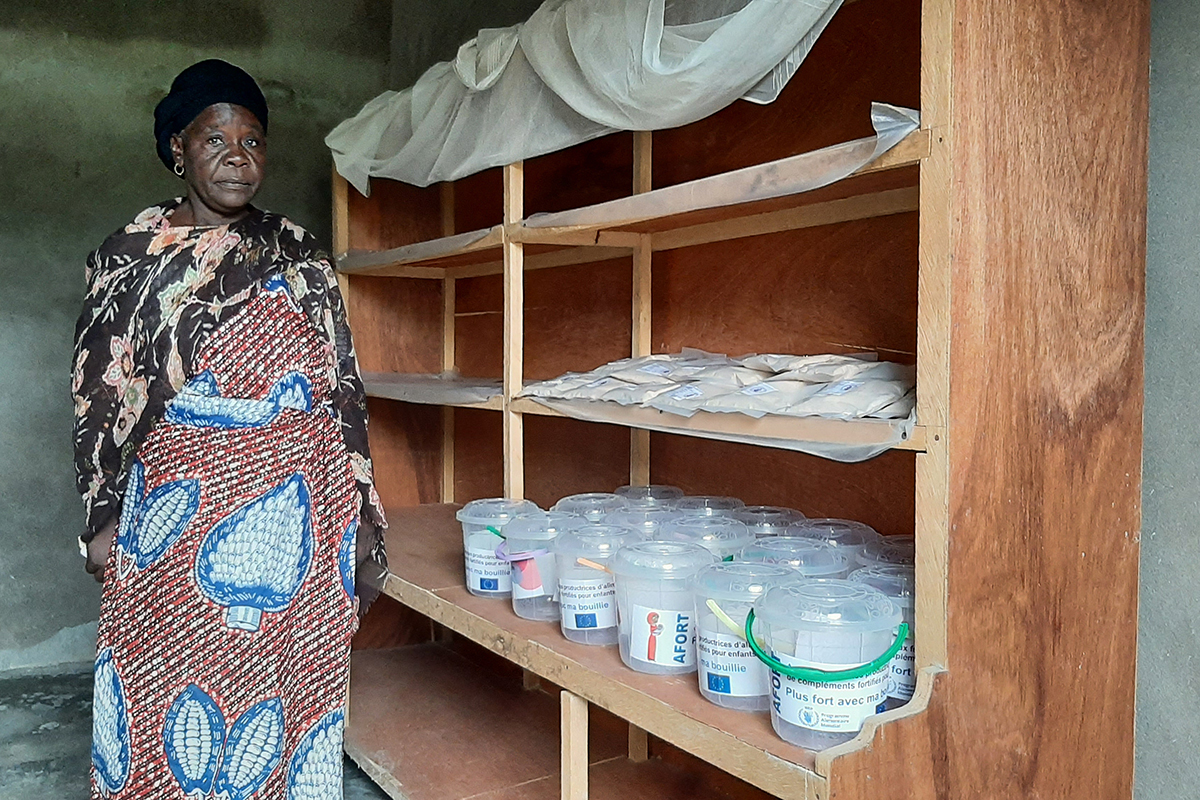
–
The European Commission (EC) is committed to addressing all forms of malnutrition, and supports a multi-sectoral approach towards improved nutrition outcomes by combining measures from a variety of sectors – including agriculture, health, water, sanitation and hygiene, education and social protection. Together with dietary diversification and supplementation, food fortification forms part of a broader package to tackle micronutrient deficiencies.
To strengthen these initiatives, the EC established and funded the Food Fortification Advisory Services (2FAS) in December 2015, which was implemented through a partnership between Landell Mills and the Global Alliance for Improved Nutrition (GAIN). 2FAS supported the EC, the EUDs and related public and private sector stakeholders to achieve sustainable food fortification programmes that are integrated into national food systems.
The EU funded 12 food fortification pilot projects in 10 countries: Chad, Congo DRC, Ethiopia, Gambia, Kazakhstan, Kenya, Madagascar, Niger, Sudan and Tajikistan.
The projects supported three key programmatic interventions – 1) production of fortified infant foods, 2) large-scale food fortification and 3) nutrient enriched crops – by providing technical support to food processors and encouraging policy dialogues with national authorities.
In addition to providing technical support and backstopping at country-level, the EU also funded 3 research studies:
The lessons learnt from these pilot projects and the findings from the research studies are feeding the reflexions of the EC for the next phase of programming to scale up EU’s support to local producers of fortified foods. The aim is to improve the accessibility and the affordability of nutritious foods for the most vulnerable ones, and thus contributing to reducing malnutrition, in particular micronutrient deficiencies.
Language: English
Language of Q&A session: English
Picture credit:
by secretary
by secretary
by secretary
by secretary
by secretary
by secretary
by secretary
by secretary
by secretary
by secretary
by secretary
by secretary
by secretary
by secretary
by secretary
by secretary
by secretary
by secretary
by secretary
by secretary
by secretary
by secretary
by secretary
by secretary
by secretary
by secretary
by secretary
by secretary
by secretary
by secretary
by secretary
by secretary
by secretary
by secretary
by secretary
by secretary
by secretary
by secretary
by secretary
by secretary
by secretary
by secretary
by secretary
by secretary
by secretary
by secretary
by secretary
by secretary
by secretary
by secretary
by secretary
by secretary
by secretary
by secretary
by secretary
by secretary
by secretary
by secretary
by secretary
by secretary
by secretary
by secretary
by secretary
by secretary
by secretary
by secretary
by secretary
by secretary
by secretary
by secretary
by secretary
by secretary
by secretary
by secretary
by secretary
by secretary
by secretary
by secretary
by secretary
by secretary
by secretary
by secretary
by secretary
by secretary
by secretary
by secretary
by secretary
by secretary
by secretary
by secretary
by secretary
by secretary
by secretary
by secretary
by secretary
by secretary
by secretary
by secretary
by secretary
by secretary
by secretary
by secretary
by secretary
by secretary
by secretary
by secretary
by secretary
by secretary
by secretary
by secretary
by secretary
by secretary
by secretary
by secretary
by secretary
by secretary
by secretary
by secretary
by secretary
by secretary
by secretary
by secretary
by secretary
by secretary
by secretary
by secretary
by secretary
by secretary
by secretary
by secretary
by secretary
by secretary
by secretary
by secretary
by secretary
by secretary
by secretary
by secretary
by secretary
by secretary
by secretary
by secretary
by secretary
by secretary
by secretary
by secretary
by secretary
by secretary
by secretary
by secretary
by secretary
by secretary
by secretary
by secretary
by secretary
by secretary
by secretary
by secretary
by secretary
by secretary
by secretary
by secretary
by secretary
by secretary
by secretary
by secretary
by secretary
by secretary
by secretary
by secretary
by secretary
by secretary
by secretary
by secretary
by secretary
by secretary
by secretary
by secretary
by secretary
by secretary
by secretary
by secretary
by secretary
by secretary
by secretary
by secretary
by secretary
by secretary
by secretary
by secretary
by secretary
by secretary
by secretary
by secretary
by secretary
by secretary
by secretary
by secretary
by secretary
by secretary
by secretary
by secretary
by secretary
by secretary
by secretary
by secretary
by secretary
by secretary
by secretary
by secretary
by secretary
by secretary
by secretary
by secretary
by secretary
by secretary
by secretary
by secretary
by secretary
by secretary
by secretary
by secretary
by secretary
by secretary
by secretary
by secretary
by secretary
by secretary
by secretary
by secretary
by secretary
by secretary
by secretary
by secretary
by secretary
by secretary
by secretary
by secretary
by secretary
by secretary
by secretary
by secretary
by secretary
by secretary
by secretary
by secretary
by secretary
by secretary
by secretary
by secretary
by secretary
by secretary
by secretary
by secretary
by secretary
by secretary
by secretary
by secretary
by secretary
by secretary
by secretary
by secretary
by secretary
by secretary
by secretary
by secretary
by secretary
by secretary
by secretary
by secretary
by secretary
by secretary
by secretary
by secretary
by secretary
by secretary
by secretary
by secretary
by secretary
by secretary
by secretary
by secretary
by secretary
by secretary
by manager
by manager
by manager
by manager
by manager
by manager
by manager
by manager
by manager
by manager
by manager
by manager
by manager
by manager
by manager
by manager
by manager
by manager
by manager
by manager
by manager
by manager
by manager
by manager
by manager
by manager
by manager
by manager
by manager
by manager
